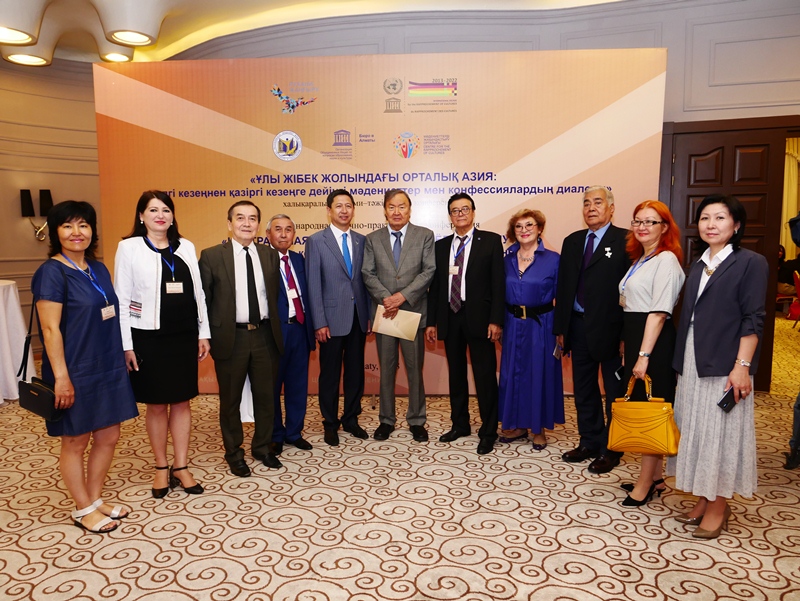ASTANA – Scholars from 20 countries discussed the role of Central Asia on the Global Silk Road, the dialogue of cultures and confessions from antiquity to modernity at the June 13-15 Central Asia on the Great Silk Road International Scientific and Practical Conference in Almaty. The scientists paved the way for the development of political and social relations between Central Asian countries.
The conference gathered historians, archaeologists, philosophers and turkologists from around the world. Examining interactions in trade, culture and geopolitics is essential in contemporary world, noted the scientists.
“The global conference dedicated to intercultural relations was held for the first time in Kazakhstan. We raised the question of interethnic dialogue between countries that existed on the Silk Road,” said Victor Novozhenov, head of the International Dialogue Department of the Centre for the Rapprochement of Cultures.
“The importance of considering the issue of cultural dialogue and transport corridor between China and Europe is immense. Kazakhstan inevitably falls into this field of geopolitics and trade, to use the experience of our ancestors,” he added.
American nomadologist Anatolyi Khazanov highlighted the popularisation of Chinese silk and trade relations in ancient times.
“The silk reached Europe by sea through India since the second century. It became well-known during the reign of Emperor Augustus. The silk could reach Europe through land as well. The caravans marched from China through Dzhungaria to Black sea, Central Asia and Caucasus,” said Khazanov
“The flourishing moment of silk trade was during the Mongolian rule. Between 750 – 1250, the silk trade was extinguished. The flourishing and extinction periods of trade occurred repeatedly. Chinese silk has reappeared in Western Europe,” he added.
Conference participants considered the impact of structural changes in the world economy on the economies of Central Asian states. Another discussion concerned social modernisation in Central Asian countries. Participants also examined the status of employment in Central Asian states in the future of international labour migration.
In addition, they considered the potential of Central Asia to preserve the region’s cultural heritage and nominate sites for the UNESCO World Heritage List.
The conference was organised by the Centre for the Rapprochement of Cultures with the support of the Ministry of Culture and Sports and UNESCO Office in Almaty. It was organised within the context of the UNESCO International Decade for the Rapprochement of Cultures (2013-2022).


